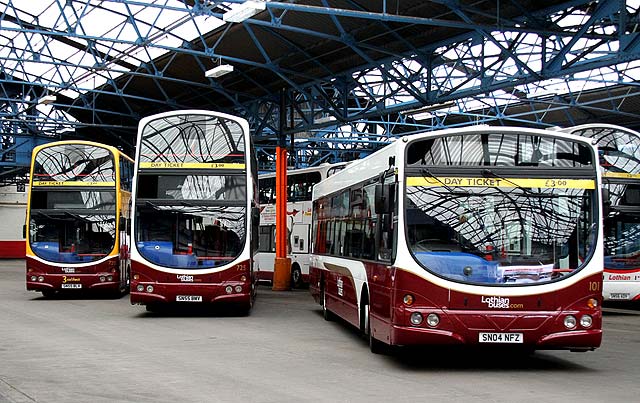QUANTICOL: A Quantitative Approach to Management and Design of Collective and Adaptive Behaviours
 QUANTICOL is a new research project funded by the FET-Proactive programme on Fundamentals of Collective Adaptive Systems. It aims to develop novel quantitative analysis techniques to support the design and operational management of a wide range of collective adaptive systems, with particular focus on applications arising in the context of smart cities. The concept of smart cities is on the research agenda of many EU and other international institutions and think-tanks. The following definition in a recent article on ‘Smart cities in Europe’, by Caragliu et al., gives insight in the prominent factors that are believed to generate smart cities: “We believe a city to be smart when investments in human and social capital and traditional (transport) and modern (ICT) communication infrastructure fuel sustainable economic growth and a high quality of life, with a wise management of natural resources, through participatory governance.” Although not the only factor for success of smart cities, innovative ICT-based technology is seen by many as a key factor that would allow modern cities to reach or maintain a good and sustainable quality of life for their inhabitants, with timely and equitable distribution of resources. At the core of many proposals ranging from smart buildings and transportation to a smart electricity grid, is the transformation of centralised system architecture and control to a much more decentralised and distributed design. Similar issues of optimal distribution and congestion avoidance play a role in smart transportation, whether based on public transport or community initiatives such as shared bikes. The very fact that such systems are highly distributed and their adaptive behaviour relies on the tight and continuous feedback between vast numbers of consumers and producers, makes such systems typical examples of large scale collective adaptive systems (CAS). These are systems that consist of a large number of spatially distributed heterogeneous entities with decentralised control and varying degrees of complex autonomous behaviour.
QUANTICOL is a new research project funded by the FET-Proactive programme on Fundamentals of Collective Adaptive Systems. It aims to develop novel quantitative analysis techniques to support the design and operational management of a wide range of collective adaptive systems, with particular focus on applications arising in the context of smart cities. The concept of smart cities is on the research agenda of many EU and other international institutions and think-tanks. The following definition in a recent article on ‘Smart cities in Europe’, by Caragliu et al., gives insight in the prominent factors that are believed to generate smart cities: “We believe a city to be smart when investments in human and social capital and traditional (transport) and modern (ICT) communication infrastructure fuel sustainable economic growth and a high quality of life, with a wise management of natural resources, through participatory governance.” Although not the only factor for success of smart cities, innovative ICT-based technology is seen by many as a key factor that would allow modern cities to reach or maintain a good and sustainable quality of life for their inhabitants, with timely and equitable distribution of resources. At the core of many proposals ranging from smart buildings and transportation to a smart electricity grid, is the transformation of centralised system architecture and control to a much more decentralised and distributed design. Similar issues of optimal distribution and congestion avoidance play a role in smart transportation, whether based on public transport or community initiatives such as shared bikes. The very fact that such systems are highly distributed and their adaptive behaviour relies on the tight and continuous feedback between vast numbers of consumers and producers, makes such systems typical examples of large scale collective adaptive systems (CAS). These are systems that consist of a large number of spatially distributed heterogeneous entities with decentralised control and varying degrees of complex autonomous behaviour.
A further characteristic of such systems is that often humans are both agents within such systems and end-users standing outside them. As end-users, they may be completely unaware of the sophisticated underlying technology needed to fulfil critical socio- technical goals such as effective transportation, communication, and work. The pervasive but transparent nature of CAS, together with the importance of the goals that they address, mean that it is imperative that thorough, a priori, analysis of their design is carried out to investigate all aspects of their behaviour, including quantitative and emergent aspects, before they are put into operation. We want to have high confidence that, once operational, they can adapt to changing requirements autonomously without operational disruption.
Literature about appropriate scalable development methods or frameworks is still scarce and there are very few design methodologies, common modelling languages or model-based formal verification approaches for either functional or non-functional properties. This holds in particular for the design of systems in which spatial homogeneity cannot be assumed to be a property of the system. Also integrated theoretical foundations are still lacking. The longer term research vision of the EU-FET Pro-active project QUANTICOL, that started on April 1st, 2013, is the development of a well- founded formal design and quantitative analysis framework for CAS and a comprehensive software engineering environment, supporting a model-based design methodology for the development of CAS for smart city applications taking non-functional properties into account. Such a design framework will also enable and facilitate experimentation and discovery of new design patterns for emergent behaviour and control over spatially distributed CAS. To reach this objective, the QUANTICOL project brings together two distinct research communities. These are Formal Methods (stochastic process algebras, (stochastic) logics and associated verification techniques); and Applied Mathematics (mean field/continuous approximation and control theory). The exploitation of mean-field approaches and the development of statistical simulation/model-checking techniques to analyse properties of stochastic process algebraic models are two very promising developments to overcome limitations in scalability and provide powerful novel verification tools for CAS.
This project will also build on the experience and results of the ASCENS project for what concerns the foundations and techniques to model and analyse Autonomic Service Components Ensembles.
The principal case studies that will drive the development of the new framework consider CAS of socio-technical nature. The first is based on scalability analysis and capacity planning for smart urban transportation systems. Such systems are being adopted in many European cities to reduce CO2 emissions and pollutants and encourage green means of transportation. The main issues are ensuring that there is sufficient capacity within the system to avoid traffic congestion and traffic diversion, and investigation of the effect on users of adaptive, spatially dependent incentives. The second case study considers smart grid applications. In particular, the development of a general modelling and analysis framework will be driven by a number of problems regarding the modelling, prediction and control of such smart grids.
The QUANTICOL project is part of the EU FP7 FET Proactive Initiative on Fundamentals of Collective Adaptive Systems (FOCAS). The QUANTICOL consortium is composed of five partners:
• The University of Edinburgh, Edinburgh, U.K.
• The National Research Council of Italy, ISTI, Pisa, Italy
• Ludwig-Maximilians Univerity (LMU) Muenchen, Munich, Germany
• Ecole Polytechnique Federale de Lausanne, Lausanne, Switzerland
• IMT Institute for Advanced Studies, Lucca, Italy
Further information on the project can be found at: http://www.quanticol.eu.
(1) Susan Shaheen and Stacey Guzman (Fall 2011), "Worldwide Bikesharing". Access Magazine No. 39. University of California Transportation Center. Retrieved 2013-05-14 via wikipedia.







